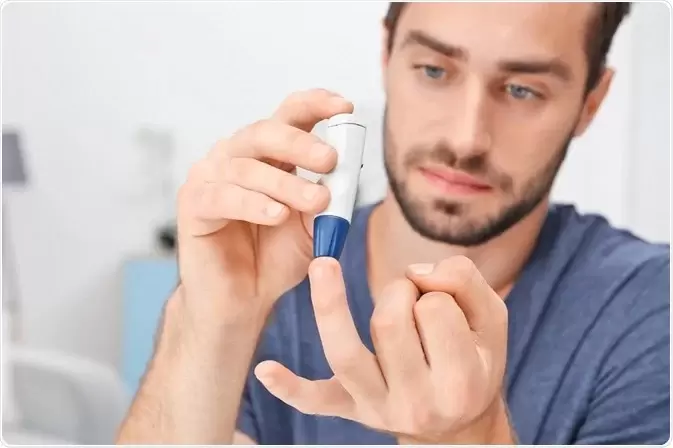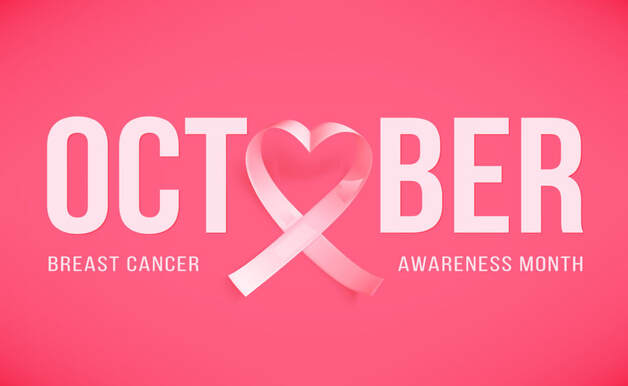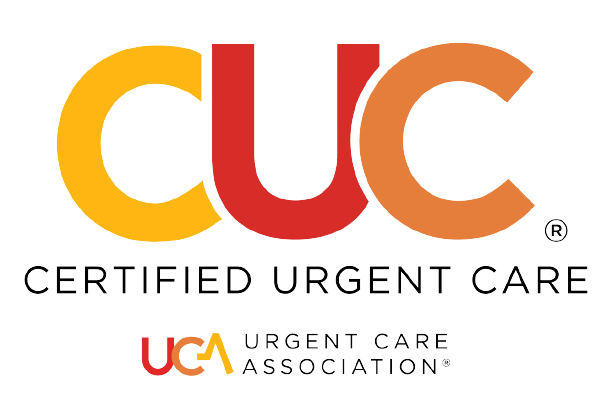|
Is an excellent time to talk about...diabetes! And we're not alone: 1 in 10 Americans (or about 37 million Americans) have diabetes. COMMON MYTHS ABOUT DIABETES
MYTH - I went CRAZY on Halloween and ate a ton of sugar! I generally eat a lot of sugar anyway, so I will probably get diabetes. Luckily, for you trick-or-treaters, this is somewhat false. Sugar itself does not cause diabetes. Becoming overweight from eating too much sugar on a regular basis, however, can increase your chances of getting Type 2 diabetes. To be clear: diabetes is when the body does not make enough insulin. Insulin moves the sugar in our blood into the cells to produce energy for our bodies. When there's too much residual sugar not making it into the cells (as is the case with diabetics) the blood sugar level rises. For general health reasons though, you really should cut back on sugar (particularly refined sugar) as much as possible. MYTH - I have no family history of diabetes, so I won't get it. False. While family history can play a part in increased risk of Type 1 and Type 2 diabetes, many factors and lifestyle choices can influence your chances of getting Type 2 diabetes. These include:
It's important to take a truthful and comprehensive look at your family history, health choices, and genetic risk factors when assessing your odds of acquiring diabetes. MYTH - Only overweight people get diabetes. I am skinny, so I have nothing to worry about. Regardless of weight, anyone can get diabetes. Like with any disease, exercising regularly, eating a healthy diet, keeping stress down, and getting adequate sleep all assist in keeping you healthy overall, and lowering your chances of getting diabetes. MYTH - Now that I have diabetes, I can never eat sugar or Halloween candy again! Not true. While extra precautions (such as increasing your dose of insulin for the day) should be taken to prevent complications, diabetic folks can eat sugar. It just requires some planning, and be sure to speak with your doctor on how best to approach occasional, celebratory "sugar fests" like Halloween, Thanksgiving, and Christmas. I'M CONCERNED THAT I MIGHT BE PRE-DIABETIC OR I'M ALREADY DIABETIC. WHAT CAN ADVANCED URGENT CARE DO TO HELP ME? At Advanced Urgent Care, we are very familiar with handling diabetic patients. Our physicians will obtain your medical history and perform a physical examination. Blood work (including a glucose study) will be performed to assess your blood sugar levels. Depending upon the results, our doctors might make dietary and lifestyle suggestions, prescribe insulin or other medications, and / or recommend more acute monitoring of your condition. Diabetes is a serious disease, which can affect other aspects of your body's functions. However, with preventive measures, a proper diagnosis, and thoughtful health maintenance, patients with diabetes can expect to have a good quality of life. For more information on diabetes diagnosis, prevention, and care, visit the American Diabetes Association. October is Breast Cancer Awareness Month. Breast cancer is the second most common cancer in women, but can occur in men as well. Routine check ups are recommended for women – particularly as they age. WHAT ARE THE RISK FACTORS?
WHAT ARE THE SYMPTOMS?
Any new lump in the breast should be taken seriously and screened by a physician. HOW CAN I PREVENT BREAST CANCER? Breast cancer is likely a combination of genetic and environmental factors. 5-10% of women who acquire breast cancer have mutations of the BRCA1 and BRCA2 genes. Other women have several contributing risk factors, while some women have none. Therefore, the best approach for preventing breast cancer is simply to pay attention to your family history, lifestyle, and changes in your breasts and body:
HOW CAN ADVANCED URGENT CARE SUPPORT ME? At Advanced Urgent Care, our doctors can assist you in diagnosing a potential case of breast cancer. While any combination of tests may be required after examination, our standard protocol might involve:
Depending upon the findings, a treatment plan or referral to a specialist may be recommended. Note: If your primary care or referring physician has requested a CT Scan, Ultrasound or bloodwork, please call us at 305-294-0011 to schedule your appointment. JUST REMEMBER... Breast cancer is a very common disease, and there are more treatments available now than ever before. While some procedures to eliminate the cancer are more severe than others, only you can make the decision on what's best for you and your body (after considering professional advice). Throughout the process, please remember to stay calm, find community, and know that you are far from alone. We are here for you. For more information, please visit: www.breastcancer.org The above information was contributed from the Mayo Clinic.
Advanced Urgent Care Marathon physician, Dr. John O'Connor, won "Best Medical Professional" in Marathon this week!
Dr. O'Connor has been a staple of the Middle Keys community for years. We are so grateful for his leadership, experience, compassion, and care at our Marathon location. Also, hats off to the amazing staff that supports him as well! YOU ROCK, DOC! WHAT IS MONKEYPOX? Monkeypox is a virus that was first recorded in 1970. Generally a rare disease, in May of 2022, an outbreak occurred in the United Kingdom that has now spread across the US. HOW DOES MONKEYPOX SPREAD? Monkeypox is predominantly spread through close, intimate, skin-to-skin contact. This may come in the form of touching an infected individual's scabs or rashes, through sex, through prolonged face-to-face contact (respiratory exposure), and even through fabrics or surfaces. Recent studies indicate that Monkeypox may also spread to pets. WHAT ARE THE SYMPTOMS? The most notable symptom of Monkeypox is a skin rash that generally looks like small blisters or pimples. These are generally quite painful and develop into scabs before healing. Other symptoms include fever, chills, exhaustion, swollen lymph nodes, aches, and respiratory ailments (congestion, sore throat, runny nose, etc.). Some patients may only experience the rash and no other symptoms. HOW LONG DO SYMPTOMS LAST? Commonly, Monkeypox symptoms last 2-4 weeks. The disease can be spread from the onset of symptoms all the way through the scab phase. Not until a new layer of skin has formed and all expressions of the illness have subsided can a patient be deemed non-contagious. HOW CAN I PREVENT MONKEYPOX? Avoid skin-to-skin contact with anyone who is positive for the virus, or appears to have a rash like Monkeypox. Avoid touching objects and clothes that the infected individual has used. Wash your hands often. Avoid large gatherings with close body contact such as dance halls, concerts, raves, spas, etc. Reduce your sexual partners, and practice safe sex. Get vaccinated if possible. DOES ADVANCED URGENT CARE TREAT MONKEYPOX? While there is no cure or specific treatment for Monkeypox, at Advanced Urgent Care, we will assess patients individually to determine their best course of care. This may include antiviral drugs and medications to relieve the pain and discomfort associated with the disease. On the positive side, Monkeypox generally clears up on its own with time, and rarely causes severe illness or death. Information sourced from the CDC. https://www.cdc.gov/poxvirus/monkeypox/index.html
Dear current and prospective patients,
Advanced Urgent Care is pleased to announce that beginning today, July 4, our Medical Exam fees will be dropping in price from $150 to $99 for cash paying customers! Now, you might be asking: Why would a business charge less during a period of inflation? That doesn't make sense! Well, the answer, dear friends, is because we can. You see, Advanced Urgent Care is a family-owned business. We love our Keys community, and believe that patients deserve high quality care at affordable prices. The impacts of inflation are hurting millions of Americans around the country. During times like these, the least we can do is give back by helping our fellow Conchs keep a little extra cash in their pockets. It's our honor to offer this reduction, and we thank you for your continued support of Advanced Urgent Care. Sincerely, AUC WHY YOU REALLY, REALLY, MIGHT NOT WANT ANTIBIOTICS FOR THAT COLD, COUGH or FLU
The Key West cold and flu season is soon upon us. Kids will be in school busily learning, but also passing the viruses around. Tourists leaving cold weather behind bring with them northern viruses - yuck. Everyone, it seems, is coughing and wheezing. (Wash your hands – A LOT!) At Advanced Urgent Care, we see a lot of folks with these symptoms. Often, they may feel they need antibiotics to get better. Rarely, do they NEED antibiotics to get better. CONSIDER The average viral upper respiratory illness (cold) lasts from 7 to 10 days. Studies have shown that patients with viral bronchitis (the common “chest cold”) often have a cough for 2 weeks or more. The unnecessary prescribing of antibiotics has led to the emergence of drug resistant bacteria, which can cause life threatening infections and in some cases death. (“Superbugs”) Unnecessary antibiotics can cause diarrhea (sometimes severe enough to lead to hospitalization). Unnecessary antibiotics cost all of us money. The unnecessary use of antibiotics for adult upper respiratory infections (colds) in the U.S. is estimated to cost 1.1 billion dollars per year. Lets look at an example of why people think they need antibiotics for viruses: Patient #1 takes acetaminophen and over the counter nasal spray and is over his cold in 10 days. Patient #2 gets the same cold and after a few days is started on antibiotics. He also is better in 10 days. Of course, he is now convinced that the antibiotics were responsible for his cure. Without antibiotics, 10 days. With antibiotics, 10 days. MYTH-BUSTING MYTH - Green snot or sputum means you have a bacterial infection (not true, the cold has no bearing on the cause and is common with viral illnesses). MYTH – A cough lasting more than a week needs to be treated with antibiotics (not true – see above regarding duration of cough with a “chest cold”). MYTH – A fever with a cold means antibiotics are needed (not true, viruses frequently cause fevers – think of influenza). MYTH – If I take antibiotics, my virus won’t lead to a more serious infection (not true, if you do develop a bacterial complication of a virus – this is RARE - it is more likely to be a serious and resistant organism if you have been on antibiotics). In the past, many physicians routinely prescribed antibiotics for any illness with a fever. We now know that this is not good medical practice. At Advanced Urgent Care, we will carefully evaluate you and recommend or prescribe treatments that will make you feel better while your body responds to a virus. Occasionally, AUC may determine that you will benefit from antibiotic treatment. When this is the case, we try to use the most appropriate drug with the least side effects. In general, however, antibiotics are reserved for specific bacterial infections (e.g. strep throats, certain pneumonias, staph skin infections, urinary tract infections, etc.). |
AuthorAdvanced Urgent Care of the Florida Keys Archives
March 2024
Categories |







 RSS Feed
RSS Feed

